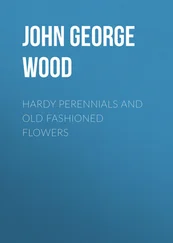He had recently, in the western cities of the States, won a certain fiercely contested notoriety in the art of portrait-painting, an art which he had come more and more to practise according to the very latest of those daring modern theories, which are summed up sometimes under the not very illuminative title of Post-impressionism, and he had, during the last few days, indulged in a natural and irresistible wish to associate this new departure with his personal experiences at Nevilton.
Gossiping nonchalantly with the village-wives, as he ascended the dusty road, by the vicarage wall, his thoughts ran swiftly over the motley-coloured map of his past life, and the deviating track across the world which he had been led to follow. He congratulated himself in his heart, as he indulged in easy persiflage with his fellow-wayfarers, upon his consistent freedom from everything that might choke or restrain the freedom of his will.
How fortunate, how incredibly fortunate, that he should, in weather like this, and in so abounding a mood of creative energy, be completely his own master, except for the need of propitiating two naive and amusing women! He entertained himself by the thought of how little they really knew him, — these friendly Romers — how little they sounded his real purposes, his essential feelings! To them no doubt, he was no more than he was to these excellent villagers, — a tall, fair, slouching, bony figure, with a face, — if they went as far as his face, — massively heavy and irregular, with dreamy humorous eyes and a mouth addicted to nervous twitching.
A clump of dandelions, obtruding their golden indifference to human drama, into the dust of the road at his feet, mixed oddly, at that moment, in these obscure workings of his brain, with a sort of savage caress of self-complacent congratulation which he suddenly bestowed on his interior self; as, beneath his pleasant chatter with his rural companions, he thought how imperturbable, how ferocious, his secret egoism was, and how well he concealed it under his indolent good-nature! He had passed now the entrance to the vicarage garden, and in the adjoining field he observed with a curious thrill of psychic sympathy the tenacious grip with which a viciously-knotted ash-tree held to the earth with its sturdy roots. Out-walked at last by all the other returned travellers, Dangelis glanced without pausing down the long Italianated avenue, at the end of which shone red, in the afternoon sun, the mullioned windows of the great house. He preferred to prolong his stroll, by taking the circuitous way, round by the village. He knew the expression of that famous west front too well now, to linger in admiration over its picturesque repose in the afternoon sunshine. As a matter of fact a slight chill of curious antipathy crossed his consciousness as he quickened his steps.
Happily situated though he was, in his pleasant lodging beneath that capacious roof, the famous edifice itself had not altogether won his affection. The thing suggested to his wayward and prairie-nurtured soul, a stately product rather of convention than of life. He felt oddly conscious of it as something symbolic of what would be always intrinsically opposed to him, of what would willingly, if it were able, suppress him and render him helpless.
Dangelis belonged to quite a different type of trans-Atlantic visitor, from the kind that hover with exuberant delight over everything that is “old” or “English” or “European.” He was essentially rather an artist than an antiquary, rather an energetic workman than an epicurean sentimentalist. Once out of sight of the Elizabethan pile, the curious chill passed from his mind, and as he approached the first cottages of the village he looked round for more reassuring tokens. Such tokens were not lacking. They crowded in upon him, indeed, from every side. Stopping for a moment, ere the houses actually blocked his view, and leaning over a gate which faced westward, Dangelis looked out across the great Somersetshire plain, to which Leo’s Hill and Nevilton Mount serve the office of watchful sentinels. Tall, closely-clipped elm-trees, bordering every field, gave the country on this side of the horizon, a queer artificial look, as if it had been one huge landscape-garden, arranged according to the arbitrary pleasure of some fantastic artist, whose perversion it was to reduce every natural extravagance to the meticulous rhythm of his own formal taste.
This impression, the impression of something willed and intentional in the very formation of Nature, gave our eccentric onlooker a caressing and delicate pleasure, a sense as of a thing peculiarly harmonious to his own spirit. The formality of Nevilton House depressed and chilled him, but the formality of agetrimmed trees and hedges liberated his imagination, as some perverse work of a Picasso or a Matisse might have done. He wondered vaguely to himself what was the precise cause of the psychic antipathy which rendered him so cold to the grandeur of Elizabethan architecture, while the other features of his present dwelling remained so attractive, and he came to the temporary solution, as he took his arms from the top of the gate, that it was because that particular kind of magnificence expressed the pride of a class, rather than of an individual, whereas he himself was all for individual self-assertion in everything — in everything! The problem was still teasing him, when, a few minutes later, he passed the graceful tower of St. Catharine’s church.
This strangely organic, this curiously anonymous Gothic art — was not this also, the suppression of the individual, in the presence of something larger and deeper, of something that demanded the sacrifice of mere transient personality, as the very condition of its appearance? At all events it was less humiliating, less of an insult, to the claims of the individual will, when the thing was done in the interest of religion, than when it was done in the interests of a class. The impersonality of the former, resembled the impersonality of rocks and flowers; that of the latter, the impersonality of fashions in dress.
“But away with them both!” muttered Dangelis to himself, as he strode viciously down the central street of Nevilton. The American was in very truth, and he felt he was, for all his artistic receptivity, an alien and a foreigner in the midst of these time-worn traditions. In spite of their beauty he knew himself profoundly opposed to them. They excited fibres of opposition and rebellion in him, that went down to the very depths of his nature. If, allowing full scope to our speculative fancy — and who knows upon what occult truths these wandering thoughts sometimes stumble? — we image the opposing “streams of tendency,” in Nevilton village, as focussed and summed up, in the form of the Gothic church, guarded by the consecrated Mount, and the form of the Elizabethan house, owned by the owner of Leo’s Hill, it is clear that this wanderer, from the shores of the Great Lakes, was equally antagonistic to both of them. He brought into the place a certain large and elemental indifference. To the child of the winds and storms of the Great Lakes, as, so one might think, to the high fixed stars themselves, this local strife of opposed mythologies must needs appear a matter of but trifling importance.
The American was not permitted, on this occasion, to pursue his meditations uninterrupted to the end of his walk. Half-way down the south drive he was overtaken by Gladys, returning from the village post-office. “Hullo! How have you got on?” she cried. “I suppose you’ll believe me another time? You know now, I expect, how impossible the Yeoborough shops are!”
“On the contrary,” said the artist smiling, “I have found them extremely good. Perhaps I am less exacting,” he added, “than some artists.”
“I am exacting in everything,” said Gladys, “especially in people. That is why I get on so well with you. You are a new experience to me.”
Читать дальше












